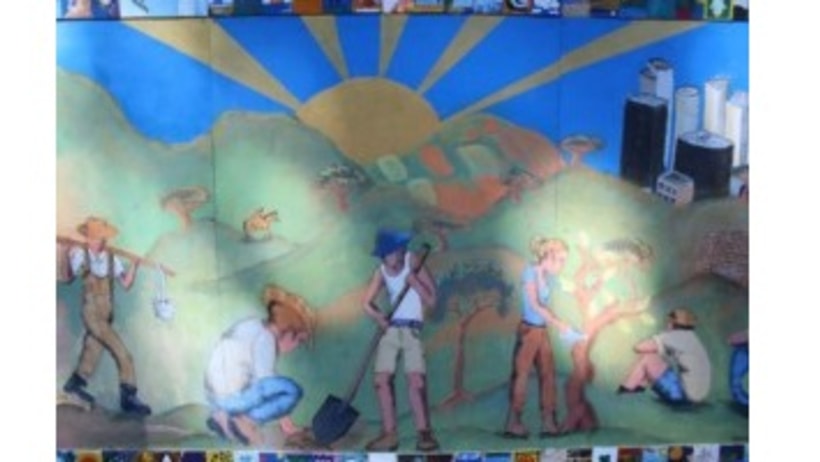Oasis Songs: Musings from Rav D
August 5, 2016 / 1 Av, 5776
Hardships often create new opportunities. Over the past week, I relearned that.
Sephardic Adventure Camp (SAC), which was founded in the 1940’s, is one of the oldest Jewish camps in the Northwest. It was created by members of two Seattle congregations to preserve the unique culture of Sephardic Jews while offering their children a rich camp experience. Anyone who has attended a Jewish summer camp knows the power it has to build a life-long Jewish identity and happy memories.

All of that was threatened when a forest fire came within a quarter mile of the location where Sephardic Adventure Camp (SAC) was set to hold its summer session. On August 1st, just one day before campers were set to arrive, staff was evacuated. It didn’t look like there would be camp this year for 86 boys and girls. An act of real leadership changed all that.
Sam Perlin is the director of Camp Solomon Schechter (CSS). When he learned what had happened, he reached out to see how CSS might be able to help. Informed by a commitment to Jewish values, such as welcoming the stranger and providing hospitality, Sam acted. In very short order, it was decided that this summer, SAC would relocate to CSS.
CSS staff met and rapidly mapped out a plan that would ensure that Schechter kids would have the same wonderful time and program they were promised, while also guaranteeing that the halakhic (Jewish customs and law) differences of each camp community would be preserved with integrity.
Having the opportunity to watch this up close was a privilege. Apart from the logistical complexity of accommodating an addition 120 people (campers and staff) and a second program with no lead time, Sam was concerned about how CSS campers would react to the news. After morning tefillah (prayer services) on Thursday morning, Sam began to make his case to the kids, checking his carefully scripted notes. His task was to state our commitment to helping and to living out our values and to get the kids on board with this sudden change. But as he began to do so, his voice was suddenly drowned out by the unexpected.
You see, as soon as he mentioned the fire and that this year SAC and CSS would hold camp together, a spontaneous and universal cheer went out from all Schechter campers. Fists were pumped in the air and a wave of joy spread through the amphitheater. Our kids were game. They instinctively knew this was the right thing to do and were thrilled that their camp was walking its talk.
After the peal of excitement petered out, questions were asked and answers provided. Yes, camp would go on as planned. Yes, our CSS boys and girls could still dance together. No, SAC would make their own food that met their slightly different standards of kashrut. Yes, not only would you be allowed to talk to the other campers, but also we hope that you will form strong new friendships.
Across the world, a very different story of living together was playing out. Ten hours ahead of us at the Kotel, the Western Wall in Jerusalem, Women of the Wall held their monthly Rosh Hodesh services this morning to welcome in the new month of Av. Taunts and worse were screamed at the women, who were told, “you need to be exterminated like cockroaches.” Ultra-Orthodox women “hit, punched and kicked members of Women of the Wall” while the police looked on passively.
The irony could not be more heightened. After all, the month of Av marks the destruction of our holy Temple on account of “sinat hinam,” rampant hatred. Standing at the very remains of that Temple, we still have not learned our lesson. There’s a part of us that wants to brush off these despicable acts as somehow foreign to us or shrug them off as just another example of Middle Eastern intransigence or of the dangers of religious fundamentalism. Yet a recent New York Times exposé of bad behavior at Trump rallies forces us to acknowledge that the problem is all of ours.
Difference can be frightening. Change can be upsetting. Negotiation across the divide can be painful. Simultaneously, all of these sorts of hardships create possibility. You have to be endowed with a certain moral vision to see the opportunity. You have to possess a certain moral character to act on that vision. I ache for the moral failings of my nation and for my homeland.
Today, though, that pain is not at the center of my vision. A bunch of campers and their director are–and I am grateful.
Shabbat shalom,



